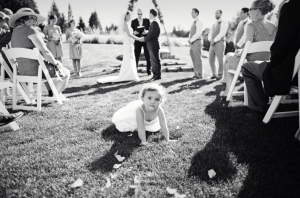One of the many hats I wear at this Katie moment in time is helping out a bit with the Clarion West Writers Workshop. What is this thing, you may ask? It’s a six week intensive writing workshop for Science Fiction and Fantasy writers. Every week there is a different professional writer, and every week it is hoped you write a short story. Which may sound sort of doable, and in practice is bananas, because the short story will be critiqued by everyone.
I went to Clarion West in 2005 and loved it so much. There’s probably a couple reasons for that. First, I am, at my core, a summer camp kid, and CW echoes back to a summer camp experience where you get thrown in and your life gets changed forever and you meet weird friends you would have never met otherwise. Second, it’s a truly excellent and thoughtful program that smart people have been running for a long time.
Anywho, I’ve been picking up people from the airport and hanging out at the house a small bit as students arrive for the summer, and no one has asked me for any advice on the workshop but if they did? Here’s what I would say (and it applies for any writing program, really).
1. In advance of the workshop, read a thing or two by your teacher/s. It will help you know what they are really good at, and therefore how they can help you. Also, it’s flattering to have people who’ve read your work, and you want to make friends with the instructors. They can be huge for helping you out in your writing career.
2. Out of ideas on what to write? Sometimes the problem is you could write anything, and therefore it’s too huge. So give yourself some constraints. Mine, during Clarion West, was writing every week a story that was in the same vein of the author. So for my Octavia Butler week, I had creepy aliens, and for Andy Duncan week I did alternative history.
3. In any kind of workshop situation, there’s all kinds of FOMO (fear of missing out) moments because new friends are always doing this that or the other thing. But here’s the secret: you won’t miss out on anything if you do what you want because wherever you are, that’s the moment you want to be in. And if you decide to stay in to write? How incredible that you get the chance to do that.
4. You will fit in some ways, and you will be the outcast in some ways, and both things are fine. For me, it was such a wonder going to Clarion West and meeting all these SFF writers who were smart and literate. I was a pig in awesome mud. But also, I was leftier than almost everyone else and often found myself arguing with people in my head and real life. So it goes.
5. Stretch your writerly muscles. Write things that fail. Write things that suck in new and exciting ways. Write things you care about so much it makes your hands shake to get it on the paper.
6. Feed the animal. You are the animal. Take yourself on walks, eat healthy food, talk to loved ones, and get your sleep.
Big luck and love to anyone in a writing workshop over the summer, but especially to the Clarion West class.
What do we want? Brains! When do we want them? Brains!

